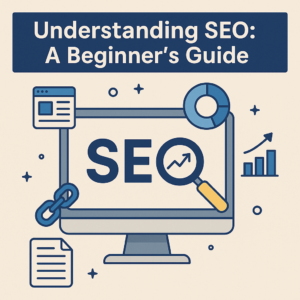How Vegas Sets the Line: Behind the Scenes of Sports Betting Odds
Ever looked at betting odds and wondered, “How do they come up with these numbers?” You’re not alone. The process...

Ever looked at betting odds and wondered, “How do they come up with these numbers?” You’re not alone. The process behind how Vegas sets the line for sports betting is part math, part psychology, and part market wizardry. Whether you’re a casual bettor or someone itching to get smarter with your picks, understanding this process can give you a real edge when you bet on sports.
Let’s peel back the curtain and see what really goes on behind those blinking sportsbook boards.
1. What Does “The Line” Even Mean?
Think of “the line” as a prediction—not of who will win, but by how much. In simple terms, it’s the odds set by sportsbooks to balance action on both sides of a bet. It’s like setting up a seesaw where the goal is to keep it level.
2. Who Sets the Line?
You might imagine some shady guys in smoky rooms, but in reality, it’s a team of professionals known as oddsmakers. These are analysts, mathematicians, and sports experts working together with one mission: to set lines that encourage equal betting on both sides.
3. The Role of Oddsmakers
Oddsmakers use a combination of statistical models, expert insight, and years of experience. They don’t just look at wins and losses—they factor in player stats, historical performance, and even team morale. Their job isn’t to predict the future, but to manage risk.
4. How Data Drives the Numbers
Data is king in sports betting. Oddsmakers look at:
- Team and player performance metrics
- Injury reports
- Historical matchups
- Betting trends
It’s like baking a cake—each stat is an ingredient, and the perfect line is the finished product.
5. Public Perception vs. Reality
Here’s where things get interesting. Vegas knows the public loves favorites and high-scoring teams. So sometimes the line is adjusted to account for bias. Think of it like pricing a hot new sneaker a little higher because you know people will still buy it.
6. The Opening Line vs. Closing Line
The opening line is the first version of the odds, set days or even a week before a game. But this line often changes due to:
- Public betting trends
- Breaking news (injuries, suspensions)
- Sharp money (more on this later)
The closing line is the final odds right before kickoff. It’s often the most accurate reflection of what the market believes.
7. Why Lines Move: The Push and Pull
Think of a sportsbook as a scale. If too much money goes on one side, they adjust the line to get people to bet the other way. This helps them limit their risk and ensures they make a profit no matter who wins.
8. The Influence of Sharp Bettors
Sharp bettors are pros. They often bet early and big, and sportsbooks pay attention. If sharps start piling on a team, the line can move fast. It’s like seeing whales in the casino—you follow their lead because they probably know something you don’t.
9. Home Advantage and Other Intangibles
Home-field advantage, rivalries, coaching strategies, and even travel fatigue—all these play a role in setting the line. Vegas doesn’t just look at cold stats; they consider the human factor too.
10. How Injuries and Weather Matter
A star quarterback being out or a sudden snowstorm can drastically shift the odds. Oddsmakers monitor breaking news like hawks because even the smallest details can change the landscape of a game.
11. Psychology: Playing the Public
Here’s the trick: sportsbooks want to manage emotion. They know people bet with their hearts, not their heads. A beloved underdog might get too much love, so Vegas adjusts the line to profit from those emotional bets.
12. Vegas Doesn’t Try to Predict the Winner
This might shock you—but Vegas isn’t in the business of picking winners. They’re in the business of balancing money. Their ideal scenario? Half of you bet on Team A, half on Team B, and they collect the juice (the fee they charge for taking your bet).
13. How You Can Use This to Your Advantage
If you know what Vegas is doing, you can spot value bets—games where public perception has skewed the line, and the actual risk is lower than it looks. It’s like finding a great deal in a store because everyone else is distracted by flashy signs.
14. Common Mistakes to Avoid
- Chasing losses: Don’t double down on a bad day.
- Ignoring line movement: Always watch where the money’s going.
- Betting with emotion: Love your team, but don’t bet on them blindly.
- Overreacting to hype: A flashy play doesn’t always mean long-term success.
15. Final Tips Before You Bet on Sports
- Shop around for the best line—different books offer slightly different odds.
- Track your bets—data helps you learn.
- Start small—don’t blow your bankroll on one game.
- Educate yourself—like you’re doing now.
Conclusion
Betting lines aren’t magical numbers pulled out of thin air—they’re carefully crafted tools designed to balance bets and guarantee profits for sportsbooks. Once you understand the strategy behind how Vegas sets the line, you gain a whole new perspective. So the next time you bet on sports, remember: it’s not about predicting the winner—it’s about understanding the game behind the game.







